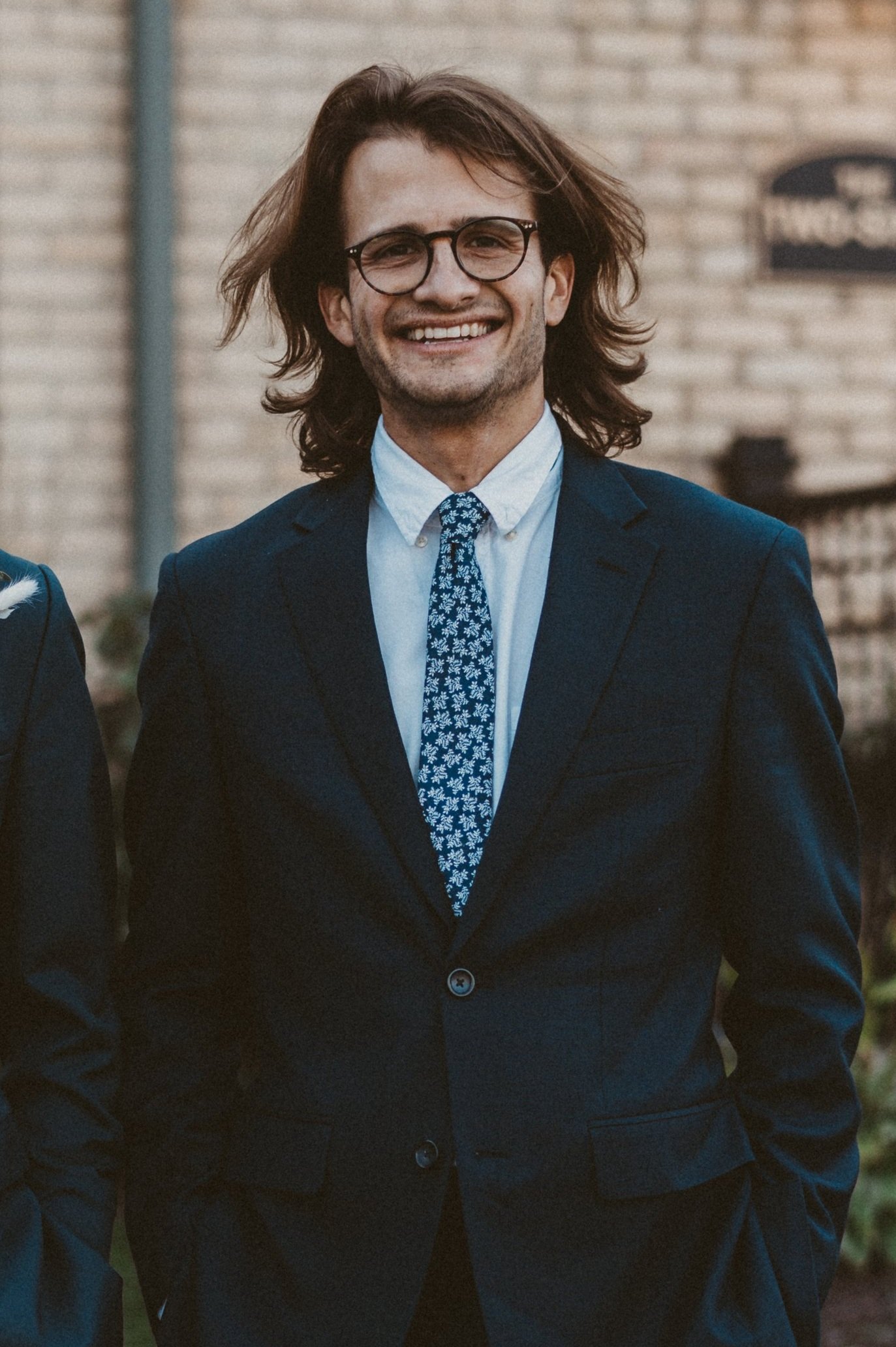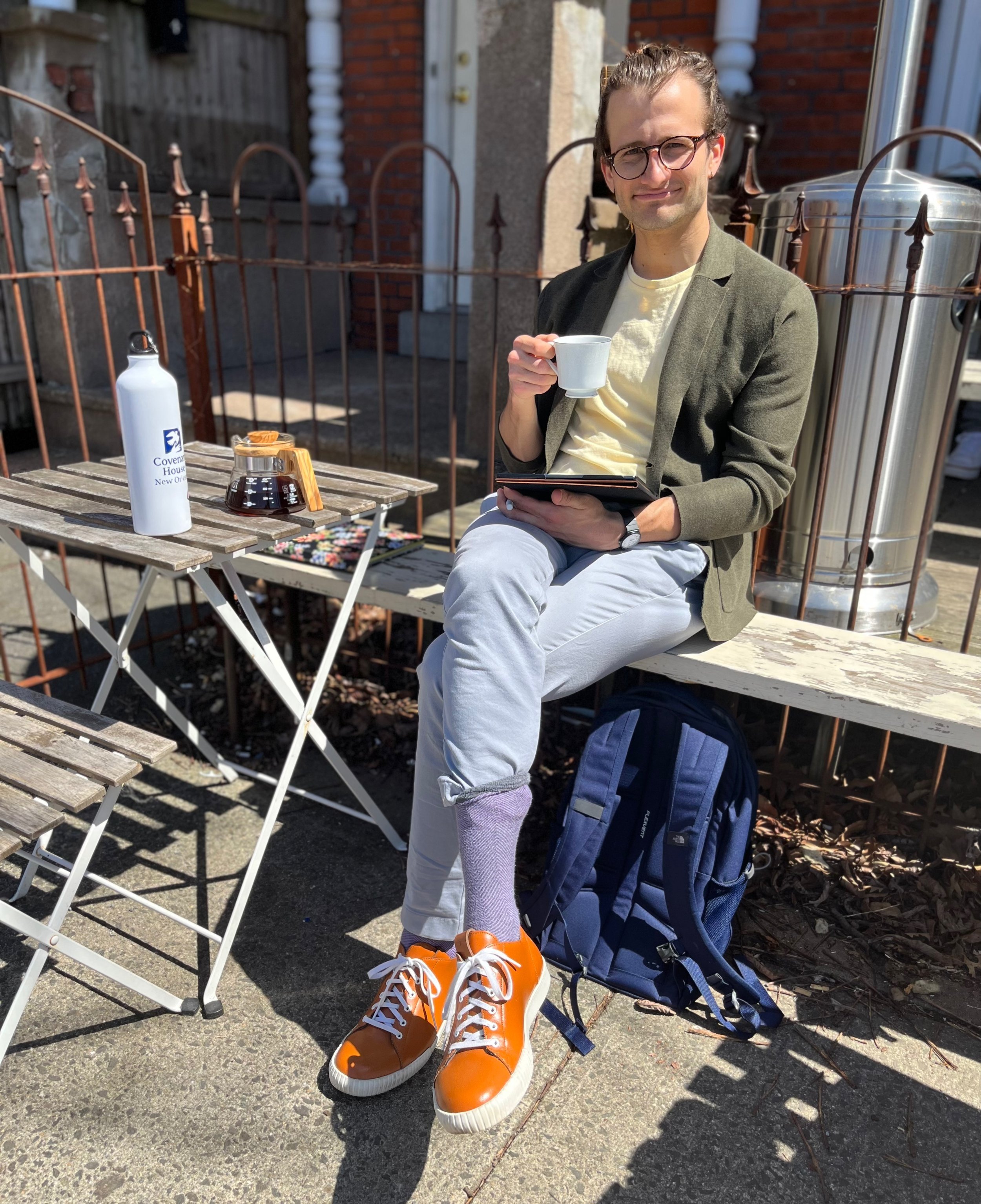
Frequently Asked Questions
Q: What’s your deal, man?
Well, my name’s Mitch.
For most of my career I’ve been a strategy consultant. But prior to that I trained as an engineer.
At one point I spent a few years building my own business. And then a few months dabbling with Buddhist monastic life.
In 2020 I started training as a community mental health professional. Oh - and somewhere along the way I drove a pedicab in San Francisco.
In hindsight, I’ve really just been enjoying my time, becoming a coach.
Q: What kind of “coach” are you?
Depends who you ask. Clients who manage other people at work call me their ‘leadership coach’ or ‘executive coach’. Clients who are having trouble liking their jobs tend to call me their ‘career coach’. Clients who have tried therapy but didn’t find what they were looking for call me their ‘life coach’. My experience is that the modifier coaches put at the front of their job title has more to do with marketing than it does the substance of their coaching. What resonates most for me is ‘personal development coach’.
But I mostly just stick with ‘coach’.
Q: Alrightie then. So what exactly do you do?
I help people make changes that are very difficult but also very important to them. What that typically looks like is having in-depth conversations every other week for six months, and assigning individually-tailored practices that enable the client to name what really matters, name what’s in the way, and embody the skills, habits, and mindsets that are necessary for them to change.
Q: Uhm. Do I need that?
If it strikes you as worth your time to more closely align the unconscious daily patterns that dictate the vast majority of your experience and impact with the personal values that give meaning to this improbable, fleeting happening that we call your life, then there is a strong chance that you will look back on coaching and feel grateful for the work you’ve done.
Q: Yeah… Maybe. I’ll think about it. Tell me, what exactly does this cost?
Our first two coaching conversations are free.
Q: Free? Well that’s suspicious. What’s the catch? Are you just really bad at this?
It’s free for two reasons. First, I know for a fact that two calls will have a significant positive impact on your work and life. It matters to me that I have that impact on as many folks as possible, and offering a couple free calls helps me do that. Second, I don’t enter into long-term coaching agreements with anyone until we are both inspired by what is possible working together. Two calls is more than enough for each of us to make that judgment.
Q: What if I want more than two calls?
If, after two calls, we both feel inspired by what is happening and I have space for an additional long-term client, then we will arrange a six-month coaching agreement and an appropriate price.
Q: So then what does a full coaching program cost?
I believe strongly that the price of coaching should not be a barrier for individuals whose work is undervalued in our capitalist context. If you do not have access to professional development funds through your workplace, then I ask you to pay an out-of-pocket rate that reflects the value capitalism has placed on your work. I’ll recommend to you a specific price that is based on your discretionary income (typically between $200 - $800 per month), and I am dedicated to turning no one away for lack of funds.
If you are employed, then I expect your employer to make an investment in our work that is commensurate with the value we are creating for them (i.e., you being significantly more motivated, energetic, and effective at your job each day). I will work with your employer to ensure our program meets their expectations for professional development reimbursement. I typically charge organizations $800/month to coach a member of their staff.
Q: Okay, last question. Not to be rude, but are you actually qualified to do this? I mean - I’ve been trying to change me for a few decades, what makes you think you can change me in a few calls?
This is a great question. There are plenty of things I am unqualified for. One of those things is psychotherapy. I am not a psychotherapist, and I am not offering psychotherapy. I used to work closely with psychotherapists. I have strong opinions on the difference between coaching and psychotherapy. I will tell you if I judge you need psychotherapy instead of or in addition to coaching.
That said, I think I’m pretty damn good at this thing called coaching. And I invite you to schedule a session and judge that for yourself. In the meantime, listed below are some of my qualifications:
I am a Certified Integral Coach with New Ventures West and in the process of becoming a Professional Certified Coach with the International Coaching Federation.
I spent most of the past decade as a strategy consultant. Coaching C-suite, VP, and Director-level leaders was part of the job.
More recently, I trained as a mental health professional in a supervised clinical setting.
I have spent hundreds of hours in 1-on-1 coaching sessions with dozens of folks with wide ranging social identities, job responsibilities, and clinical diagnoses.
I have received professional training on multiple coaching methods including Co-Active Coaching, Motivational Interviewing, and Integral Coaching.
I have familiarized myself with human mind and behavior over the course of 3,000 hours of meditation practice, including six months of residential retreat, most recently with Sayadaw U Tejaniya at Shwe Oo Min Dhammasukha Meditation Centre.






